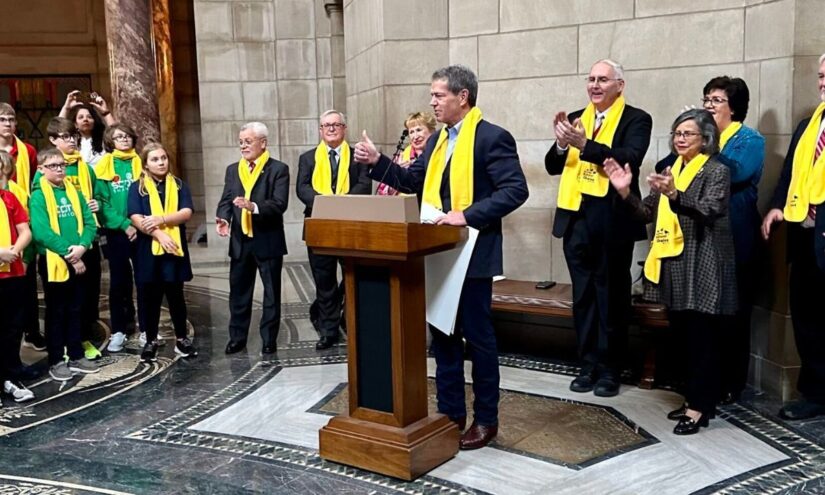During this summer, a team of students from MIT embarked on a journey to the sou …
Nebraska’s Opportunity Scholarships Bill Advances After Initial Debate
Jennifer Livingstone

Nebraska legislators engaged in an intense four-hour debate that spilled over into Tuesday night, ultimately resulting in a 31-12 vote in favor of advancing Legislative Bill 1402. This move follows a narrow decision to end a filibuster, with 33 senators voting to proceed.
Although two senators, Myron Dorn of Adams and Teresa Ibach of Sumner, were noted as “present and not voting” on the bill itself despite voting for cloture.
Advocates for the bill argue that it provides state-funded scholarships to enable access to private schools, particularly for students facing challenges in public school settings, especially those from low-income households who may benefit from the option of attending a private or parochial school.
State Senator Justin Wayne emphasized the importance of providing every child with the right to a high-quality education, irrespective of their background or circumstances.
In defense of LB 1402, the main proponent, Senator Lou Ann Linehan from Elkhorn, highlighted that the $10 million investment in the bill is a small fraction of public school expenditure, emphasizing the need to offer choice and opportunity to students from disadvantaged backgrounds.
Constitutional Debate
As LB 1402 progresses to the next round of debate, challenges loom on its constitutionality, with concerns raised about potential violations of the State Constitution’s prohibition on allocating public funds to non-public schools.
While Linehan cited a past ruling supporting a similar scholarship program for college students, critics like Senator George Dungan believe the bill strays into unconstitutional territory, setting the stage for further legal scrutiny.
Addressing objections to the bill’s constitutional validity, Senator Julie Slama countered that LB 1402 does not breach guidelines as portrayed by its opponents.
Referendum Implications
The passage or rejection of LB 1402 carries significant consequences, particularly in light of a referendum petition seeking to challenge last year’s Opportunity Scholarship Act. The fate of the referendum and its impact on school choice initiatives remain unclear.
In the wake of the recent legislative decision, the education community, spearheaded by the Nebraska State Education Association, faces setbacks in their efforts to uphold the people’s voice on key educational matters.
A contentious petition drive, marked by substantial financial investments, underscores the intense battle over educational policy, with influential figures like Betsy DeVos driving support for school choice initiatives.
Expanding Opportunities
The evolving landscape of educational access in Nebraska witnessed the passage of the Opportunity Scholarship Act last year, marking a significant shift toward offering choice in education. With LB 1402 in the spotlight, the potential for increased student enrollment in private or parochial schools stands as a primary focus.
Amid debates over the bill’s fiscal impact, proponents and detractors grapple with the implications of redirecting public funds toward private education and the broader implications for Nebraska’s educational landscape.
While supporters of LB 1402 stress the importance of addressing academic challenges in public schools, concerns loom over potential disparities and issues surrounding inclusivity and student well-being in private educational settings.
As the legislative process unfolds, the future of school choice initiatives remains uncertain, highlighting the ongoing struggle to balance educational access and quality across diverse student populations.

